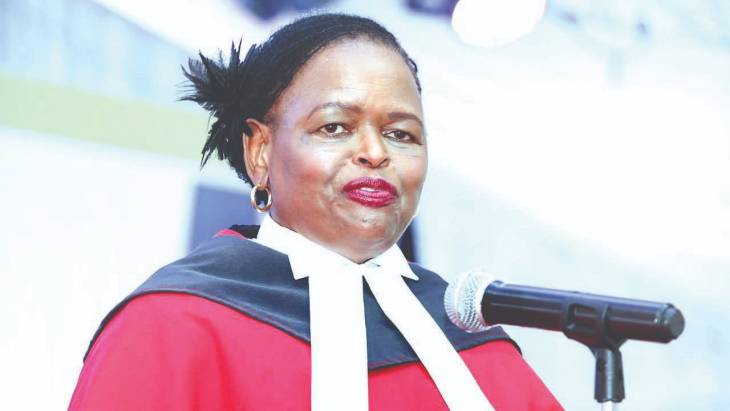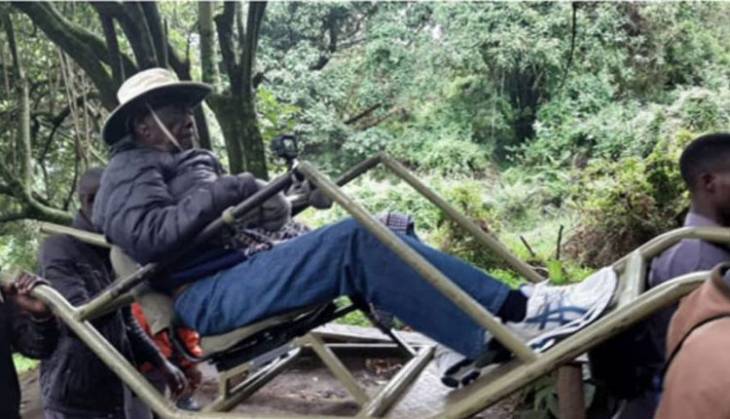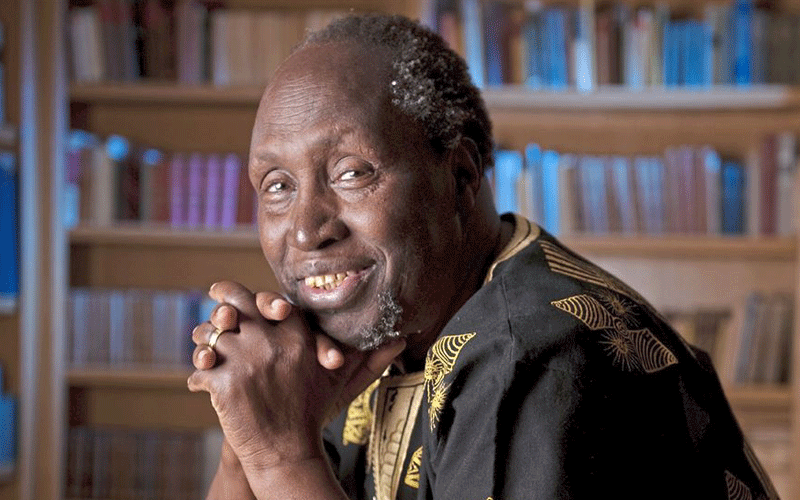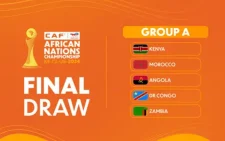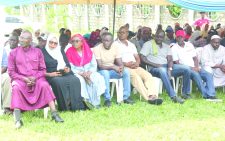Some living legends who shaped Kenya
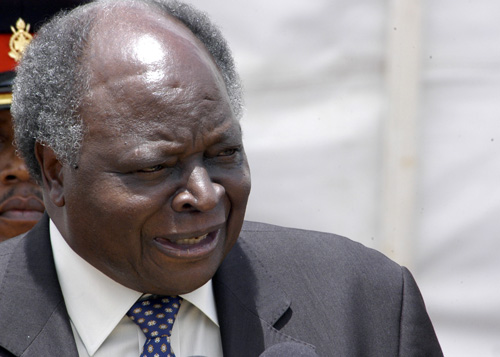
Daniel arap Moi
Born in 1924, Moi grew up in rural central Rift Valley where he schooled and converted to Christianity. He trained as a teacher and taught in various primary schools before joining politics in the mid 1950s.
In 1967, he was to be named Mzee Jomo Kenyatta’s third Vice-President after the founding father parted ways with his outspoken Principal Assistant Jaramogi Oginga Odinga and, three months later on, the resignation of the second holder of seat Joseph Murumbi.
Moi served as Vice-President for 12 years and became Head of State after Kenyatta’s demise. In 2003 – against all expectations – Moi peacefully handed over the reins of power to his former second-in-command, Mwai Kibaki.
In spite of the seamy and unsavourry dents that chararcterised his regime, Moi is credited with keeping a united country and entrenching education in the country. He lives a quiet life in retirement with age having taken a toll on his life. He is 95.
Mama Ngina Kenyatta
A trailblazer in her own unmatched way, the widow of Mzee Jomo Kenyatta was independent Kenya’s first First Lady. She stood by her husband during the heady pre-independence. She firmly kept their family together when Kenyatta was thrown into detention in Kapenguria – together with his five co-accused following the October 20, 1952, declaration of a state-of emergency by colonial government.
For the 15 years her husband was the Head of State, Mama Ngina served in the position of First Lady with diligence, utmost dignity and decorum. A revered figure across the country, Mama Ngina is credited for uprightly raising a cohesive, disciplined and respectable family devoid of wrangles, high drama and scandals that have often characterised families of fallen achievers, aristocrats of her generation. She is the mother of the fourth President of the Republic of Kenya, incumbent Uhuru Muigai Kenyatta.
Mwai Kibaki
A cool-headed intellectual powerhouse, the economist-turned-politician was the third President of the Republic of Kenya. He ascended to the throne in 2003 and descended peacefully in 2013 when he handed the reins to Uhuru Kenyatta. Most observers concur that the less talkative and humorous Kibaki is, to date, Kenya’s most outstanding Head of State for the sterling development record he registered during his 10-year tenure.
His stab at the presidency in 1997 was futile but it was ‘Third Time Lucky’ for him when it became a reality in the 2002 election. Famously described as the ‘Farmers President’ during his 10 years at the helm, Kibaki recorded tremendous achievements in infrastructure, governance and agriculture with Thika super Highway being his definition.
Kibaki mid-wifed the current Constitution which was promulgated in 2010. He is remembered for his Vision 2030 economic blueprint and establishing Free Primary Education, a feat that earned him admirers globally – including former US President Bill Clinton.
Just like his predecessor, Kibaki leads a quiet life in retirement where he, too, is grappling with the vagaries of old age.
Nding’i Mwana A’Nzeki
Bold, soft-spoken and reflective, the retired head of the Catholic Church in Kenya belongs to a creed of fire-spitting living legends, who, during their day in office threw caution to the winds to speak for the masses.
His peers were Presbyterian Timothy Njoya, the late Anglican bishops Alexander Kipsang Muge (Eldoret), John Okullu (Kisumu), David Gitari (Kirinyaga/ACK archbishop), the late Mombasa Catholic Archbishop John Njenga, retired Kisumu Catholic archbishop Zaccheus Okoth, John Cardinal Njue (Embu), retired Anglican Bishop of Mt Kenya South, Rev, Peter Njenga (now a member of the BBI), Father Ambrose Kimutai of the Litein Catholic Parish and Father Ndikaru wa Teresia of the Thika Catholic Parish.
They were firebrands who used the pulpit to champion the cause of the citizenry and push of multi-partyism. He has since retired and resides with fellow senior citizens at Nyumba Ya Wazee in Kasarani in the outskirts of Nairobi.
Ngugi wa Thiong’o
Kenya’s premier novelist has earned global distinction for his compelling literary works. He has in the last two decades – including this year – been among the respectable writers whose efforts have been considered for the Nobel Prize for Literature.
He gained global fame in the mid 1970s when the government of the late Mzee Jomo Kenyatta hauled him to detention following his critical play Ngaahika Ndeenda (I will Marry When I want). He stayed in detention until 1978 when newly-elected President Daniel arap Moi released him together with political detainees Jean Marie Seroney and Martin Shikuku.
Ngugi, who has since long dropped his Christian name James is best known for his novels Petals of Blood, A Grain of Wheat, The River Between and Saitani Mutharaba-ini (Devil on the Cross), among others.
He lives in self-exile in the United States where he teaches at the University of Irvine, California. However, he comes to Kenya once in a while to meet friends and relatives and even give lectures. Last year, President Uhuru Kenyatta hosted him and his family at State House, Nairobi.
Charles Njonjo
He was independent Kenya’s first Attorney-General. The bold and largely British-styled Octagenerian is a stickler to etiquette, discipline and physical fitness. He diligently steered nascent Kenya’s constitutional development from 1963 to 1981. He is credited with sticking his neck out in 1976 in solidarity with the then Vice-President Daniel arap Moi whom some forces close to Mzee Kenyatta wanted to block from assuming the presidency through their countrywide Change-the-Constitution crusades. It took Njonjo to declare that it was treasonable to imagine the death of the President for the group headed by the late Njenga Karume and the late Kihika Kimani to drop its machinations.
In 1981 – in what was seen as a largely choreographed episode – Njonjo resigned the position of Attorney-General to run for the Kikuyu parliamentary seat which had been left vacant by Amos Ng’ang’a . He was elected unopposed and appointed Minister for Constitutional Affairs.
But he did not last long. A year later, elements of the Kenya Air Force staged an unsuccessful coup against the government of President Moi. Tension gripped the country and by 1983, a political term known as Msaliti (traitor) sprung up. He was linked to, or understood to be, the Msaliti. Moi called for a snap-election after which he formed a Judicial Comission of Inquiry to probe Njonjo. He was found guilty but pardoned. He sequestered into quiet retirement from where once in a while he hits media headlines regarding matters of national interest. He is 99.
Manu Chandaria
An industrialist and philanthropist of international repute, the Kenyan of Indian descent has vast business interests in Kenya and the East African region. An astute investor and environment conservationist, Chandaria is the Chancellor of the United States International University (USIU) – Africa. In his mid 80s, he supports hundreds of charity causes around the country including schools, hospitals, sports, agriculture and research.
Grace Onyango
She was Kenya’s first woman mayor and first woman elected Member of Parliament. An undisputed trailbalzer, she laid the foundation for a long list of women politicians who would include Phoebe Asiyo, Julia Ojiambo, Nyiva Mwendwa and the late Grace Ogot.
John Khaminwa
He is a strong name within judicial circles where he is revered by both legal scholars and practitioners. He hit national fame during the 1987 court battle revolving around the burial of prominet criminal lawyer SM Otieno. He represented Otieenio’s widow Wambui. The three month contest saw the Umira kager clan, represented by Justice (Rtd) Richard Otieno Kwach, win the case.
However, Khaminwa was one of the few lawyers who would pick up cases for proponents of multi-party politics in the 1980s and members of the civil society. He led the way that was to be followed by young radical lawyers like Paul Muite, former Chief Justice Willy Mutunga, Gitobu Imanyara, Gibson Kamau Kuria, James Orengo, Mirugi Kariuki, Martha Karua, Juma Kiplenge, Kivutha Kibwana.
(I) Koigi wa Wamwere
(II) He represents a group of outspoken proponents of multi-party system of government. He was detained for a total of 13 years. Others include Raila Odinga, Charles Rubia, the Kenneth Matiba, the late George Anyona, Orengo, Muite, Imanyara and former Runyenjes MP Augustine Njeru Kathangu.
